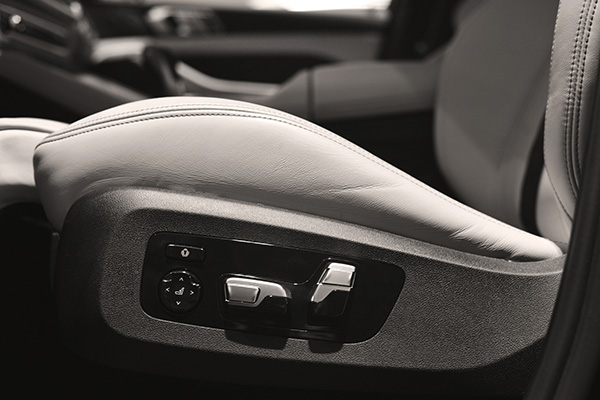Posted on 9/30/2024

Power steering is one of those car features we often take for granted. When your car’s power steering fails, it can feel like you’re wrestling the steering wheel, making even the simplest maneuvers challenging. Whether you’re driving on the highway or navigating tight parking spaces, a power steering failure can be dangerous if you don’t know what to do. So, what steps should you take if your car’s power steering fails unexpectedly? Recognize the Warning Signs of Power Steering Failure Before we jump into what you should do during a power steering failure, it’s helpful to know the early warning signs. Sometimes, power steering issues don’t happen out of the blue—they give you some clues beforehand. Here are a few things to ... read more
Posted on 8/27/2024

If your car has been on the road for many years and has racked up a lot of miles, it’s likely considered a “high-mileage” vehicle. But what does that really mean for its maintenance? As your vehicle ages, its needs evolve, and giving it the proper care can make all the difference in prolonging its life. One of the most common questions for car owners in this situation is whether high-mileage cars require special maintenance and oil changes. Let's break it down. What is a High-Mileage Car First off, what qualifies as a high-mileage car? Typically, any vehicle with over 100,000 miles on the odometer falls into this category. Modern cars are built to last, with many vehicles easily surpassing the 200,000-mile mark when properly maintained. However, as they age, the components inside your car begin to wear out, and this can influence everything from oil changes to other forms of maintenance. Do High-Mileage Cars Need Different Oil ... read more
Posted on 7/29/2024

Driving your car should be a pleasant experience, but unpleasant odors can quickly turn it into an uncomfortable ride. Understanding what these smells signify can not only make your drive more enjoyable but also prevent potential mechanical issues. Let's look into the five common bad car smells and their likely causes. 1. The Musty Smell of Mold and Mildew If you notice a musty, damp odor when you enter your car, it's likely due to mold or mildew. This often results from moisture accumulating in your vehicle's interior, particularly if you live in a humid climate or if your car has experienced water exposure. Common sources of this moisture include wet floor mats, damp upholstery, or a clogged air conditioning system. To address this issue, inspect your car's interior for any signs of moisture accumulation and clean or replace affected items, such as floor mats. Ensure that y ... read more
Posted on 6/28/2024

Managing a fleet of vehicles is no small feat. Between ensuring each vehicle is roadworthy and keeping track of maintenance schedules, the costs can add up quickly. However, a well-implemented fleet maintenance program can turn these expenses into savings. Curious about how? Let's explore how an effective fleet maintenance program can significantly save your company money and improve overall operational efficiency. Reduced Repair Costs One of the most significant benefits of a fleet maintenance program is the reduction in repair costs. Regular maintenance helps identify potential issues before they become major problems. By addressing these minor issues early, you can avoid the high costs associated with major repairs. For instance, routine checks can catch problems like worn-out brake pa ... read more
Posted on 5/31/2024

Drivers often overlook the importance of proper seat positioning, ensuring both safety and comfort while driving. Imagine embarking on a long road trip or even a short daily commute with a poorly adjusted seat—this could lead to discomfort, fatigue, and even accidents. So, why is proper seat positioning so essential? Enhancing Safety with Correct Seat Positioning Safety should always be a top priority when driving, and proper seat positioning is a fundamental aspect of road safety. Here's how: 1. Optimal Control and Reaction Time When your seat is positioned correctly, you have better control over the steering wheel, pedals, and other controls. This allows for quicker reaction times in emergency situations. Your feet should comfortably reach the pedals without stretching, and your hands should be able to grip the steering wheel without straining. 2. Reduced Risk of Injury In the unfortunate event of a collision, the posit ... read more